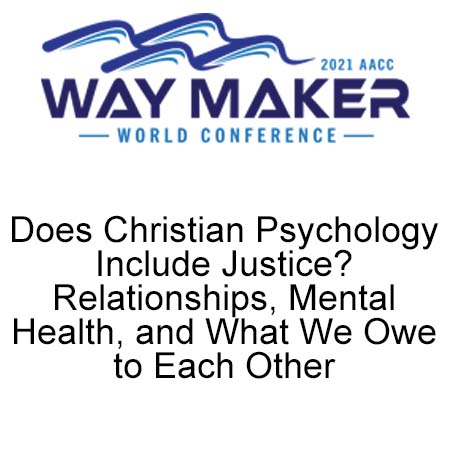Description
420: Does Christian Psychology Include Justice? Relationships, Mental Health, and What We Owe to Each Other
Warren Kinghorn, M.D., Th.D.
Duke University
P.O. Box 90967
Durham, NC 27708
Summary
Within modern psychiatry, mental disorders are often described as “brain disorders,” and the manifestations of mental illness are thought to proceed in an “inside-out” fashion, as dysfunction in brain circuits is displayed in a person’s lived experience and behavior. Though Christians tend to avoid this kind of biological reductionism, many Christians who write about mental health also adopt an “inside-out” model in which problems inside the self (such as sin, problematic thinking, or weakness of will) show up in relationship and community. There is an important truth in this—we are unique, embodied creatures of God, and what happens in our bodies, minds, and souls matters. However, we are also relational creatures who love, grow, and establish ourselves in relationship with others, with God, and with the broader creation. Because our lived experience is a function not only of our bodies but also of our relationships with others, mental illness may be understood not only in an “inside-out” model, but also in a contextual or “outside-in” model, where unwanted experience and behavior reflect disorder in relationships, community, and culture. Because we are creatures of the earth who find ourselves in relationship, and because mental illness occurs at the interface of body and relationship, then relationships matter for mental illness. Furthermore, the virtue of justice—understood by Thomas Aquinas as the disposition and will to treat others in a way commensurate with their dignity and seek a rightly ordered community in which all can flourish—is an integral virtue for any Christian psychology.
Learning Objectives
Participants will:
• Identify the difference between an “inside-out” and “outside-in” account of mental health challenges, identifying proponents for each view within research psychology and Christian theology
• Describe three ways that relationships matter for the formation and healing of mental health problems
• Describe three implications for how justice, as described by the Christian philosopher and theologian, Thomas Aquinas, matters for Christian engagement with mental healthcare





